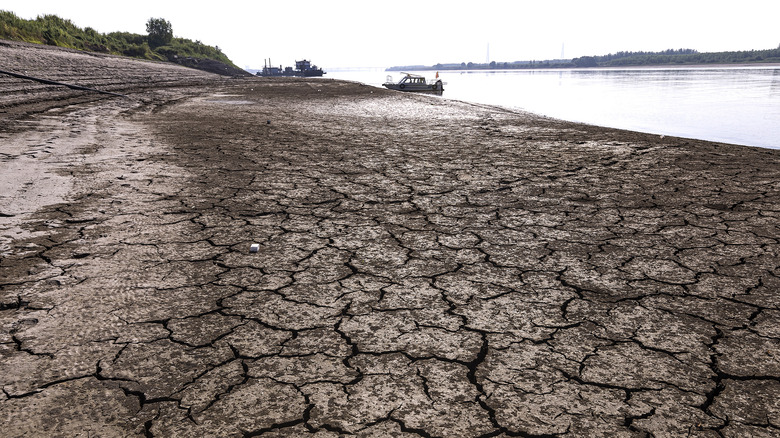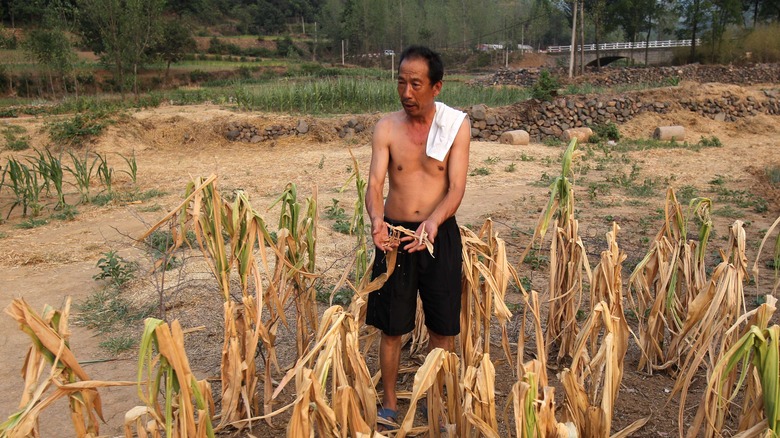Chinese Farmers Are Facing A Tough Situation With Their Harvest
It is a scenario that has been repeated again and again across the world this summer. Like many regions, China saw below-average rainfall while experiencing a record heatwave which saw temperatures soar to more than 104 degrees Fahrenheit in at least 244 cities, per CNN. The country is now struggling with a drought that has compromised its water supplies, leading officials to call for water use to be regulated, emphasizing the importance of domestic use and de-prioritizing agriculture, commercial, and industrial consumption.
One of the most visible impacts of the drought, Twitter users have shared images of central China's Poyang Lake, located in Jiangxi province, which Reuters says is a flood outlet for the Yangtze River. As of August 24, the outlet reports the river had shrunk down to ⅕ its normal size.
Thus far, CNN says more than 2 million acres worth of agricultural areas across six provinces have been affected, and as a result, Reuters is reporting Chinese agriculture officials are calling on farmers to start harvesting rice and switch out their crops. But there has been some pushback, with farmers saying that the move is easier said than done.
Chinese farmers say the government's solution isn't workable
One farmer, Hu Baolin, has told Reuters that switching out crops is more challenging than it sounds simply "because there's no land." He further explains that a lack of water has already compromised existing crops of rapeseed, sesame, and pomelo fruit, which he described as being either smaller or far less "developed" than expected.
Even Pay, of policy research firm Trivium China, has other concerns, telling The Guardian she is worried about the impact the drought will have on fresh produce. "The kinds of fresh vegetables that supply the local markets where people buy their produce each day — that's the category that is least likely to be in a major irrigation area, and which is not likely to be strategically prioritized in a national push to protect grain and oil feeds," Pay shared.
The analyst posited these shortages will make supply chain issues worse, explaining produce that feeds city dwellers is commonly grown nearby, but will now have to be sourced from elsewhere. Without the experience and infrastructure needed to ship fresh produce over long distances, it is possible some of it will spoil before reaching its destination.

